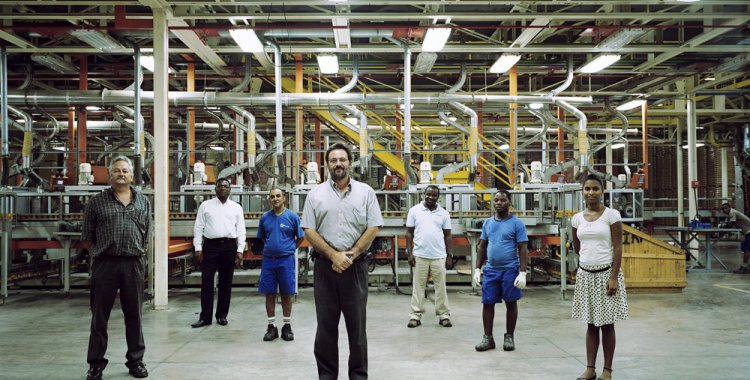The concerns were addressed this Thursday by members of the Union of Small and Medium Entrepreneurs (UPME), which brings together associates from the trade sector, with a view to finding solutions for the country's economy.
Speaking to the press, the president of UPME, Beatriz Franck, reported “the immense difficulties” because small and medium entrepreneurs have been experiencing since 2016, aggravated by the pandemic caused by the new coronavirus.
“We have difficulties in importing merchandise, in access to foreign exchange, bank credit, very high customs, airport, port fees, very high cost per square meter”, enumerated Beatriz Franck.
The businesswoman regretted the fact that the trade sector was not covered by the economic relief measures taken by the executive, despite guaranteeing the largest number of jobs in the country.
“The tax relief did not benefit us either, because group A was to pay at the end of April and group B at the end of May and now with the compulsory collection of VAT, we are unable to fulfill these obligations that the The State is charging at all costs to pay, because we have no revenue ”, he stressed.
Beatriz Franck said that a meeting has already been requested with the President, to listen to the concerns of this group of entrepreneurs, as well as to present proposals and short-term solutions, in order to guarantee the employment of more than 4000 employees in the sector.
The businesswoman criticized the Government's economic team, questioning the context on which the economic relief measures approved for this time are based.
“Because in an asphyxiating situation for the business sector, they adopt policies that only benefit the state, this is inconceivable. The State only wins if it has a strong business fabric, because we are the ones who generate the economy, we pay taxes, if they absorb too much of us, the State will suffer the most, because it will increase the unemployment rate and reduce the tax contributions ” , concluded.
Among the various participants at the meeting was João Matos, a businessman in the fashion retail business, who considered the difficulties transversal to all, especially with the situation of covid-19, “with operations completely paralyzed”.
Despite the resumption of the market now, João Matos stated that "there are enormous difficulties in terms of payment of salaries, compliance with obligations, whether with suppliers, with banks and with the tax burden".
The businessman stressed that the economic crisis that the country has been experiencing for more than five years has left entrepreneurs “completely de-capitalized” in order to be able to face the pandemic.
One of the “central” concerns for all shopping center operators is related to the question of income, pointed out João Matos, stressing that it is still indexed to the dollar, which “creates a lot of difficulties for operators”.
“In fact, if you notice, we in the biggest malls in Luanda are seeing constant changes in operations, this is because the business is difficult, rents have been indexed to foreign currency and have been updated. We live a little of the condescension of the mall owners, who are not updating in real time, but the update is done ”, he stressed.
In turn, Valdemiro Neto, representative of the civil construction sector, recalled that after the informal sector this is the one that generates more jobs, in that sense it is urgent to take measures to not raise the unemployment rate in the country.
According to the businessman, the problems are identified, pointing to the lack of financing, transparent dialogue with the provincial governments, the bureaucracy for the transfer of documents, among others.
Valdemiro Neto stressed that redundancies are already occurring at this stage, companies that closed business, in the order of 7 percent of the approximately 2400 small and medium registered civil construction companies, who “were unable to comply even with the payment of 50 percent of wages ”.







